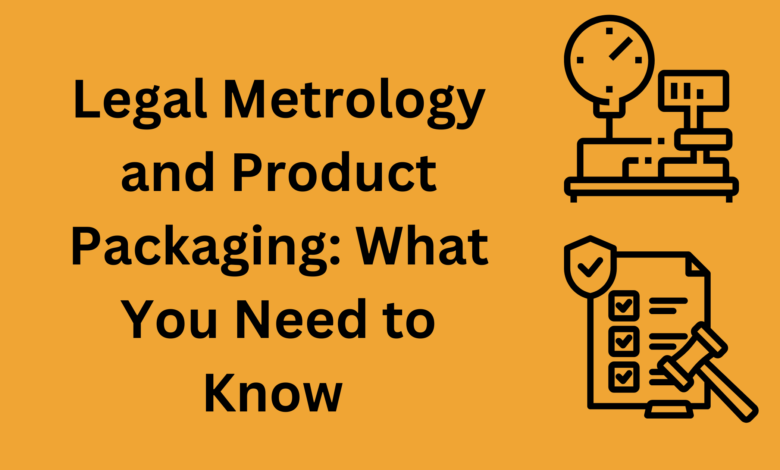
Product packaging is more than just an attractive box or label. It serves as a crucial medium of communication between businesses and consumers. Legal metrology ensures that this communication is fair, transparent, and accurate. In this blog, we will explore the importance of legal metrology in product packaging, the rules businesses must follow, and how these regulations protect consumers and promote trust in the market.
What is Legal Metrology?
Legal metrology refers to the laws and regulations that govern measurements and measuring instruments. These rules are essential for ensuring accuracy and fairness in trade. The Legal Metrology Act, 2009, in India, provides the framework to regulate pre-packaged commodities and ensure that consumers are not misled by incorrect measurements or misleading product information.
Obtaining a legal metrology certificate or an LMPC certificate is mandatory for businesses dealing with pre-packaged commodities. These certificates verify that the packaging and labeling comply with the rules under the Legal Metrology Act.
Why is Legal Metrology Important for Product Packaging?
Product packaging often contains critical information such as the product’s weight, price, quantity, and expiry date. Legal metrology ensures that this information is accurate and presented in a standardized way, allowing consumers to make informed choices.
Here’s why legal metrology is vital for product packaging:
- Consumer Protection: It prevents deceptive practices and ensures that consumers get what they pay for.
- Fair Trade Practices: It establishes uniform rules for businesses, creating a level playing field.
- Market Transparency: Clear and consistent packaging helps build consumer trust and enhances market efficiency.
- Regulatory Compliance: Following legal metrology rules, such as obtaining a weight and measurement certificate, helps businesses avoid penalties and legal issues.
Key Packaging Requirements Under Legal Metrology
In India, the Legal Metrology (Packaged Commodities) Rules, 2011, outlines the mandatory details that must be included on product packaging. Let’s break these down into simple terms:
- Mandatory Declarations
Every pre-packaged product must include the following information:
- Name and Address of the Manufacturer/Importer/Packer
Helps consumers trace the source of the product.
- Common or Generic Name of the Product
The product must be clearly identified.
- Net Quantity
Should mention weight, volume, or the number of items. For example, “500g,” “1 liter,” or “pack of 5.”
- Retail Sale Price (MRP)
Must include “inclusive of all taxes.” For instance, “MRP: ₹100 (incl. of all taxes).”
- Date of Manufacture or Packaging
Indicates when the product was made or packed.
- Expiry or Best Before Date
Especially critical for perishable items.
- Customer Care Information
Contact details for lodging complaints.
- Font Size and Legibility
The declarations must be easy to read, with specific font sizes prescribed for different packaging dimensions.
- Unit of Measurement
Products must be measured and declared using the metric system, such as grams, kilograms, milliliters, or liters. This measurement must align with the weight and measurement certificate standards issued under legal metrology laws.
- Barcode and QR Codes
While not mandatory for all products, barcodes and QR codes are often included for tracking and digital integration.
Common Packaging Mistakes Businesses Should Avoid
- Omitting Mandatory Details: Missing out on key information like net quantity or MRP can lead to penalties.
- Incorrect Measurements: Providing inaccurate weight or volume misleads consumers and violates the law.
- Ambiguous Product Names: Using misleading names or descriptions can confuse customers.
- Non-Standard Units: Declaring quantities in units not recognized by the metric system, such as “pounds” or “ounces.”
- Illegible Fonts: Using fonts that are too small or unclear can lead to non-compliance.
Penalties for Non-Compliance
Non-compliance with legal metrology rules can result in strict penalties. These may include:
- Fines ranging from ₹2,000 to ₹50,000, depending on the severity of the violation.
- Legal actions, including seizure of goods.
- Damage to the company’s reputation, leading to loss of consumer trust.
Failing to obtain or renew a legal metrology certificate, LMPC certificate, or weight and measurement certificate can also result in additional penalties, making it essential for businesses to stay compliant.
Benefits of Compliance with Legal Metrology
Following legal metrology rules isn’t just about avoiding penalties. It brings several advantages to businesses, such as:
- Enhanced Consumer Trust: Transparent and accurate packaging builds brand loyalty.
- Market Credibility: Compliance boosts your business’s reputation in the market.
- Reduced Legal Risks: Avoiding fines and legal action ensures smoother operations.
- Better Product Management: Standardized practices make inventory and sales tracking easier.
Steps to Ensure Legal Metrology Compliance
If you are a business dealing with pre-packaged commodities, follow these steps to comply with legal metrology regulations:
- Understand the Rules: Familiarize yourself with the Legal Metrology Act and Packaged Commodities Rules.
- Train Your Team: Ensure that your staff understands the importance of compliance.
- Use Certified Equipment: Weighing and measuring instruments must be certified under legal metrology standards.
- Obtain Necessary Certificates: Secure your legal metrology certificate, LMPC certificate, and weight and measurement certificate to validate compliance.
- Label Properly: Double-check that all mandatory declarations are present, accurate, and legible.
- Regular Audits: Conduct periodic checks to ensure continued compliance.
How Legal Metrology Protects Consumers
From buying groceries to electronics, legal metrology plays a vital role in ensuring consumers get the correct quantity and quality. For example:
- A consumer purchasing a 1kg pack of rice can trust that they are not shortchanged.
- Buyers of packaged snacks can rely on the “best before” date for safe consumption.
By enforcing fair practices, legal metrology fosters a trustworthy marketplace where consumers can shop with confidence.
Conclusion
Legal metrology is an essential aspect of product packaging that benefits both businesses and consumers. While it ensures fairness and accuracy in trade, it also promotes transparency and trust. For businesses, adhering to legal metrology regulations, including obtaining certifications such as the legal metrology certificate, LMPC certificate, and weight and measurement certificate, is not just a legal obligation but also a competitive advantage.
By following the rules and making accurate declarations, you can build a strong reputation, avoid legal complications, and contribute to a fair and efficient marketplace. Whether you’re a small business or a large enterprise, compliance with legal metrology laws is the key to long-term success.
Stay compliant, build trust, and grow your business responsibly.


